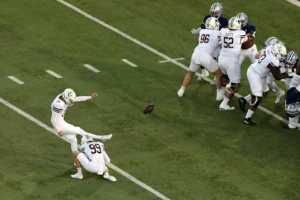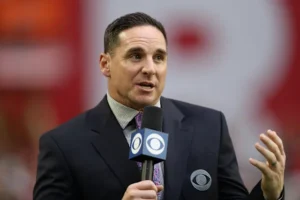
According to a family member, LSU wide receiver Kyren Lacy has passed away.
Kyren Lacy, a promising 24-year-old wide receiver from Louisiana State University (LSU), was found dead on April 12, 2025, in Houston, Texas. Reports suggest that he died by suicide, just days before a scheduled court hearing related to a fatal car crash in December 2024
Born on December 27, 2000, in Thibodaux, Louisiana, Lacy began his football career at the University of Louisiana at Lafayette before transferring to LSU in 2022. During the 2024 season, he recorded 58 catches for 866 yards and nine touchdowns, tying for the Southeastern Conference lead in touchdown receptions
In December 2024, Lacy was involved in a car accident in Chackbay, Louisiana, that resulted in the death of 78-year-old Herman Hall. Authorities alleged that Lacy was speeding and passing vehicles illegally when his actions indirectly led to the fatal crash. He was charged with negligent homicide, felony hit-and-run, and reckless vehicle operation. Lacy turned himself in and was released on bail, with a grand jury set to review the case on April 14, 2025
LSU released a statement mourning his death, offering condolences to his family, teammates, and coaches Lacy’s attorney expressed profound sorrow and emphasized the need for a full and transparent review of the investigation
Lacy’s death has prompted discussions about the pressures faced by young athletes, particularly those dealing with legal and personal challenges. His passing is a tragic reminder of the importance of mental health support within the sports community.
For those struggling with mental health issues, resources are available. In Nigeria, individuals can contact the Mental Health Foundation Nigeria or the Suicide Prevention Initiative in Nigeria (SURPIN) for support. In the United States, the National Suicide Prevention Lifeline is available at 1-800-273-TALK (8255).
Kyren Lacy’s legacy as a talented athlete and his untimely death underscore the complexities faced by individuals in high-pressure environments. His story serves as a poignant reminder of the need for comprehensive support systems for young athletes navigating personal and professional challenges.





